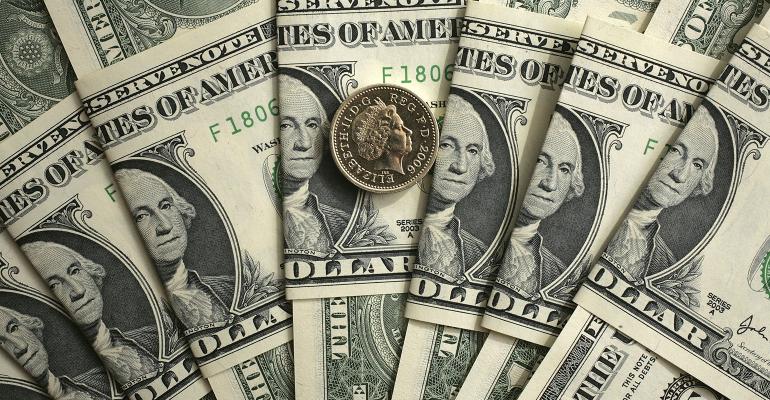(Bloomberg) -- What was close to unthinkable for the pound before the Brexit vote is now firmly on some traders’ minds.
They’re betting sterling will tumble to parity with the dollar, a level unseen in the U.K. currency’s history. In recent days, a number of wagers were put on for a one-for-one exchange rate, according to Depository Trust & Clearing Corp. data.
The pound, which had already been struggling this week amid growing talk of a so-called hard Brexit, plunged 6.1 percent in Asian hours on Friday to a 31-year low of $1.1841. The slump has made the possibility of a historic $1 level more real: a Bloomberg forecasting model, based on implied volatility, shows about a 7 percent chance of it happening within a year, compared with 3.2 percent yesterday.
“Certainly there are a few calls for parity, yes -- there are a few that are positioned for it, that is their target and objective, or they’re hedged for fear it might go in that direction,” said Neil Jones, head of hedge-fund sales at Mizuho Bank Ltd. in London. “I wouldn’t say it’s a mainstream view,” but “the structural downtrend is probably still intact for now.”
Brexit Plunge
The pound was down 2 percent at $1.2368 as of 1 p.m. London time, set for a weekly drop of 4.7 percent. That’s about the same as its slide during the week of the June 23 referendum, when Britons voted to quit the European Union. Sterling sank 1.9 percent to 90.01 pence per euro after touching 94.15 pence, the weakest since March 2009.
The lowest the pound has fallen versus the greenback in the past four decades is about $1.05 in February 1985. Bank of England data show it hasn’t dropped to parity for at a century.
The cost of hedging against sudden declines in sterling increased, according to risk-reversals data compiled by Bloomberg. The premium on six-month options to sell the currency versus the dollar over those to buy widened to 2 percentage points in the biggest jump since the Brexit result.
--With assistance from Vassilis Karamanis. To contact the reporter on this story: Anooja Debnath in London at [email protected] To contact the editors responsible for this story: David Goodman at [email protected] Paul Armstrong





